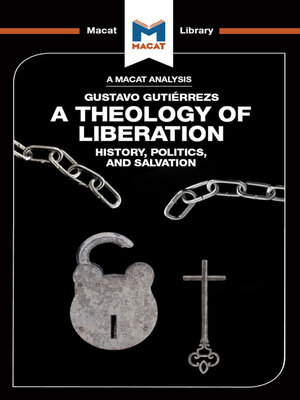An Analysis of Gustavo Gutiérrez's a Theology of Liberation
ebook ∣ The Macat Library
By Marthe Hesselmans

Sign up to save your library
With an OverDrive account, you can save your favorite libraries for at-a-glance information about availability. Find out more about OverDrive accounts.
Find this title in Libby, the library reading app by OverDrive.



Search for a digital library with this title
Title found at these libraries:
| Library Name | Distance |
|---|---|
| Loading... |
Peruvian priest Gustavo Gutiérrez wanted to solve the problem of how the church could conduct itself to improve the lives of the poor, while consistently positioning itself as politically neutral. Despite being a deeply religious man, Gutiérrez was extremely troubled by the lukewarm way in which Christians in general, and the Catholic Church in particular, acknowledged and supported the poor. In A Theology of Liberation, he asked what he knew was an awkward question, and came to an awkward answer: the Church cannot separate itself from economic and political realities.
Jesus showed his love for the poor in practical ways – healing the sick, feeding the hungry, liberating the oppressed. His example showed Gutierrez that economic, political, social and spiritual development are all deeply connected. His problem-solving prowess then led him to conclude that the church had to become politically active if it was to confront poverty and oppression across the world. For Gutierrez, the lives of the poor and oppressed directly reflect the divine life of God.







